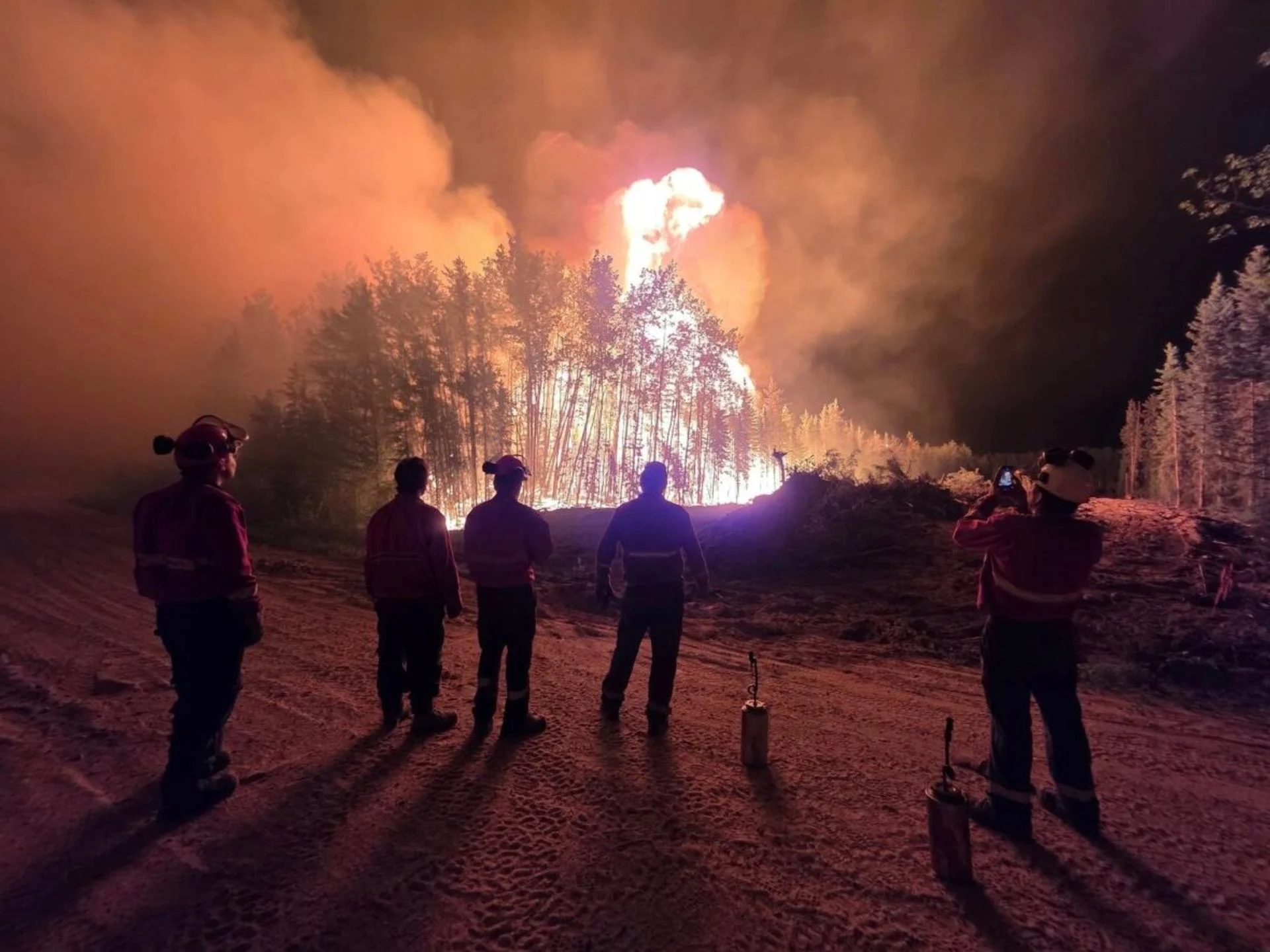
Sask. wildfires have already burned 900K hectares of forest so far this year
Wildfires continue to rage out of control in northern Saskatchewan, and have now burned almost 1,000,000 hectares of the province's forest so far this year and forced thousands of people from their homes.
"Based on the estimates right now we're looking at over 900,000 hectares in the province so far this year," Steve Roberts, vice-president of operations with the Saskatchewan Public Safety Agency (SPSA), said in an update Thursday when asked how much forest had burned this year so far.
DON'T MISS: The Weather Network's wildfire hub
For context, the entire province of Prince Edward Island is about 568,000 hectares.
New fires are starting daily, according to the SPSA. Three new fires started Thursday alone, and the massive Shoe fire in the Narrow Hills was estimated to be about 471,000 hectares in size as of late Thursday morning.
As of Thursday afternoon, there were 27 fires burning in Saskatchewan, six of them not contained, according to the SPSA.
The fires continue to pose new threats daily.
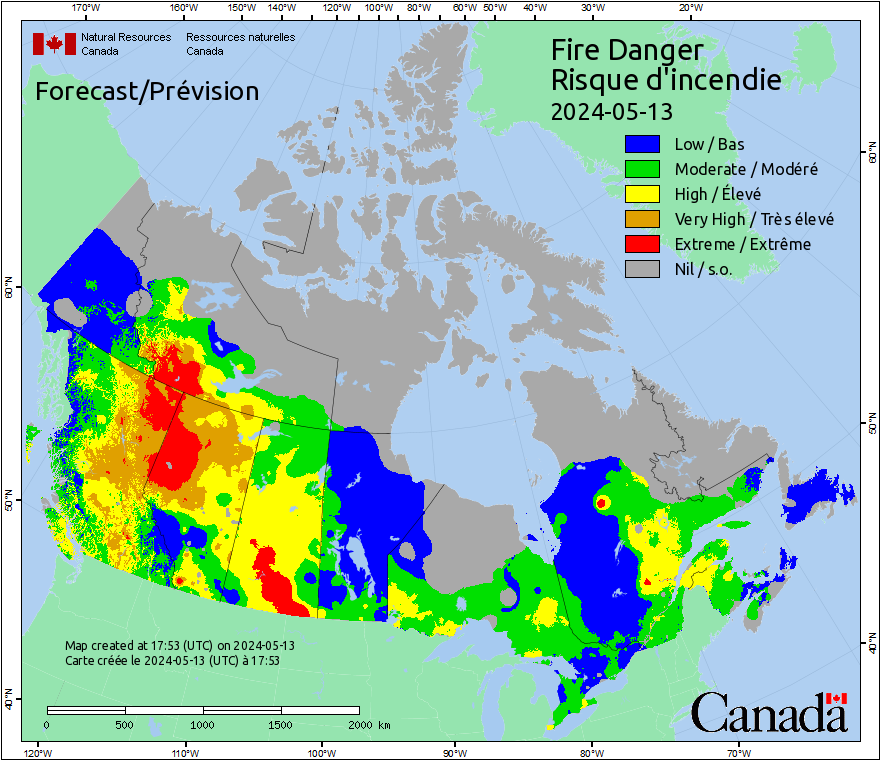
Late Thursday afternoon, the Lac La Ronge Indian Band (LLRIB) issued a mandatory evacuation order for people living in Sikachu Lake and Clam Bridge, saying wildfire was moving quickly toward the communities.
The SPSA's website lists seven fires that are "large, complex or located close to communities." The combined sizes of those seven fires, as of Thursday morning, was more than 1,000,000 hectares, according to the site.
The Pisew fire, west of La Ronge, grew to 141,000 hectares. Roberts said the winds weren't as strong Wednesday, which helped slow the fire's progress.
"Instead of seeing the fire move three to eight kilometres, yesterday we were seeing the fire move maybe a kilometre or a kilometre-and-a-half."
SEE ALSO: 2 downtown businesses burn in La Ronge, firefighters stop blaze from spreading
That gave firefighters a chance to work on building firebreaks and other suppression methods, he said.
SPSA officials are estimating the fires have forced as many as 15,000 people to flee the north.
Evacuees disoriented, stressed
A hodgepodge of supports has been a source of frustration for many evacuees. Some say they have had trouble getting through to the Red Cross or the SPSA to register.
Viviana Ruiz Arcand is in Saskatoon after evacuating from La Ronge. She said there's big holes in the available supports and people are struggling.
"I want to see access to transportation, so that if they are at a hotel and need to go to the evacuation centre to eat, they can get there," she told Saskatoon Morning host Stephanie Massicotte on Thursday.
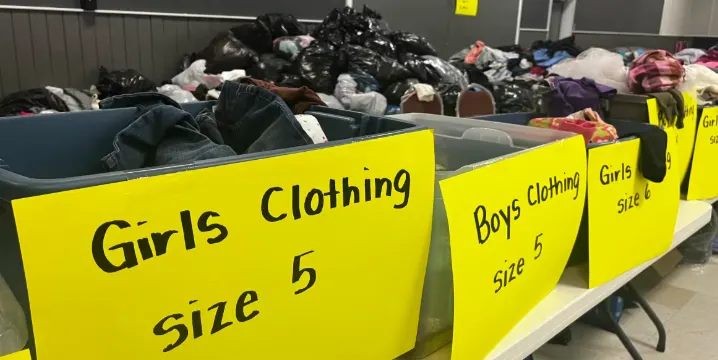
Peter Ballantyne Cree Nation has an evacuation centre set up in Prince Albert. (Cameron MacIntosh/CBC)
Money for gas and vouchers for food and groceries are also sorely needed, Ruis Arcand said.
Kim MacLean, senior director for response operations for the Red Cross, asked if people might be calling the wrong number when they are trying to reach the Red Cross.
"That 1-800 number is active and it is working, and to my knowledge there's not a long waiting period on that number," she said.
She said people can always check the Red Cross website or refer to their local leaders for information as well.
MacLean said her agency does have supports for people. She noted the Red Cross has booked nearly 1,000 hotel rooms for evacuees and is providing food and personal services to people that need it.
Tammy Cooke-Searson, chief of the LLRIB, said she's heard from some band members who have been told they have to move to a different evacuation centre or hotel, depending on if they're "off-reserve" or "on-reserve."
"We're saying this: let's just help everybody, everyone. Regardless if our band members live on or off-reserve, if they've been evacuated and impacted, then we need to be able to provide supports to them."
RELATED: Sask. premier says thousands more may need to evacuate in coming days
Cook-Searson said even now, days after the evacuations started, some band members still don't have a hotel room, or a place to sleep.
"We've had community members calling and saying they're staying in a tent, or staying in their vehicle."
For elders who have lived in northern Saskatchewan all their lives, getting displaced to a big city in the south can be disorienting and stressful.
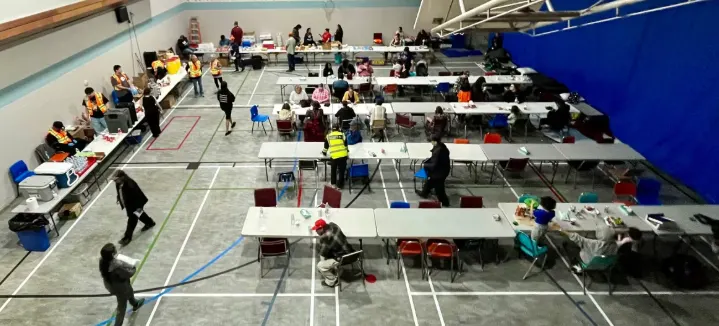
The Prince Albert Grand Council has set up an evacuation centre in Prince Albert to help people displaced by the wildfires. (Jeremy Warren/CBC)
That's part of the reason Métis Nation-Saskatchewan has opened the festival grounds at Batoche for families who have needed to evacuate due to wildfires.
"I was talking to some of the northern leaders, the chiefs, about how the elders that come from northern Saskatchewan don't like being cooped up in four walls," said MN-S president Glen McCallum. "It's very difficult for the elders."
Evacuees with campers or tents can call to register for a site (1-877-Metis-SK), and there is also a limited number of cabins and tents on site. Meals are being provided along with 24-hour security.
During Back to Batoche Days last year, 43,000 people were accommodated at the national historic site, McCallum said, so there's plenty of room.
It's not just elders who will benefit from the cultural activities there, he said — young people will too.
Many First Nations in the province have also been offering supports to those displaced from the north. They include James Smith Cree Nation and Muskoday First Nation, which are close to the routes that evacuees are travelling on their way south.
James Smith said two busloads of evacuees are in their community, and Muskoday has closed its school so it can be used as an emergency shelter. They've put calls out for donations of everything from socks and underwear to diapers to toiletries.
Between 35 and 40 evacuees are staying in the gymnasium in Beauval, while others have come through the community on their way south.
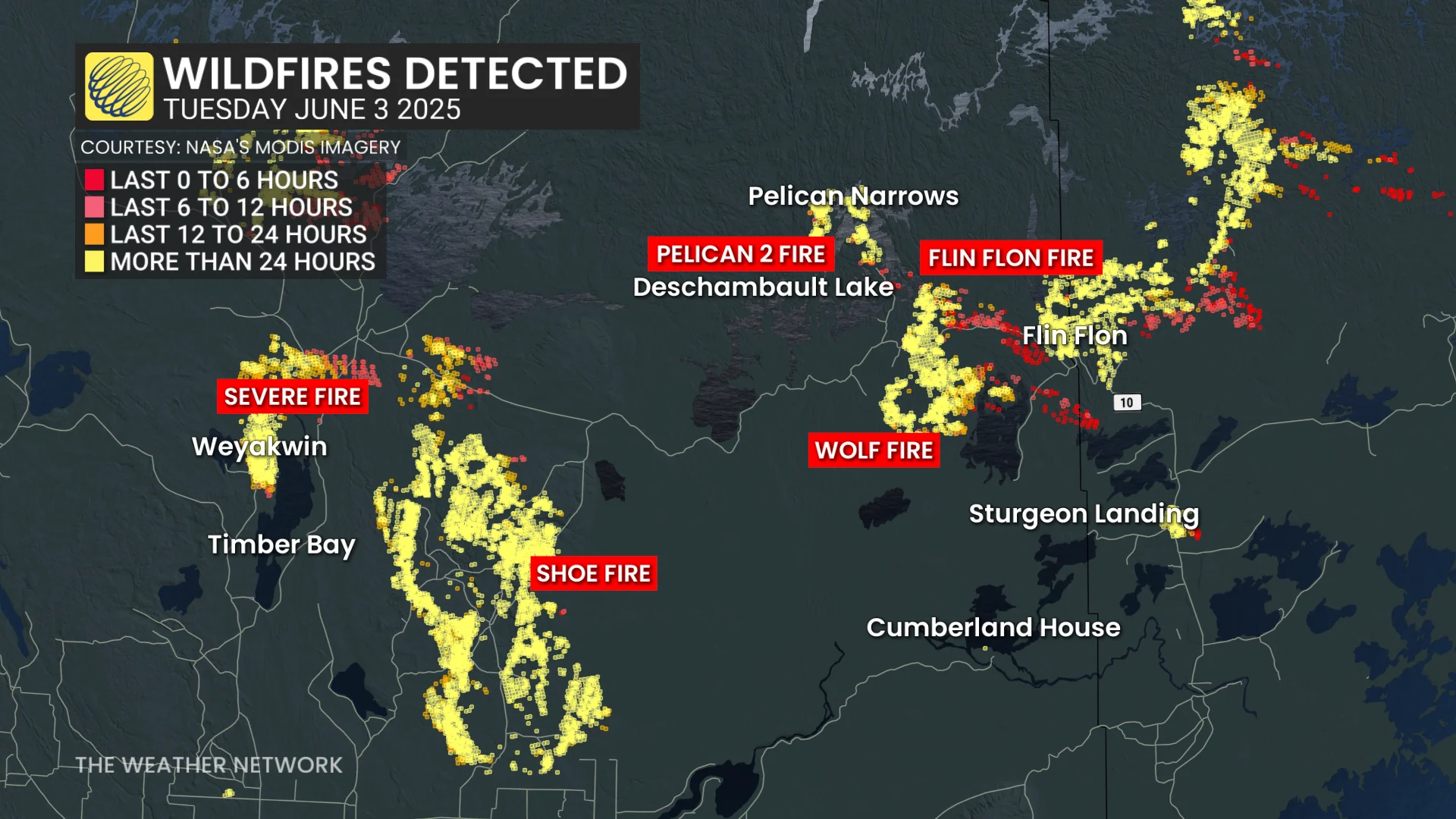
Natanis Roy, an education student in La Ronge, had to evacuate due to the wildfire there, but has family in Beauval and has been helping other evacuees.
"At first, it was very hard for me, because the first few days, I was so worried about my home being burned down," Roy said. "So the first few days, I was making myself stressed out and sick.… And then, I said, you know what, I have to support these people. I'm not the only one going through this struggle right now."
Roy is working the night shift helping evacuees, many of whom are from Hall Lake and have lost their homes. People from communities throughout northwest Saskatchewan have been making donations, Roy said.
Towns and cities are organizing supports, too.
The City of Prince Albert is offering evacuees free RV and trailer campsites at its campground, while the City of North Battleford has partnered with local agencies to support the 200 wildfire evacuees who have arrived so far.
In his daily briefing to media Wednesday, SPSA Roberts acknowledged the multiple evacuations have been complicated and confusing.
"There's a dynamic going on and we have to be honest, as much as we and other agencies are trying to find places, people are independently doing stuff as well," he said.
More than 30 communities in the province were under evacuation orders as of Thursday, affecting between 10,000 and 15,000 people. Those needing support can contact the SPSA at 1-855-559-5502. Saskatchewan evacuees can also call the Canadian Red Cross at 1-800-863-6582.
This article, written by Colleen Silverthorn, was originally published for CBC News on June 5, 2025.
Thumbnail image credit to Jarret Nelson via CBC News.